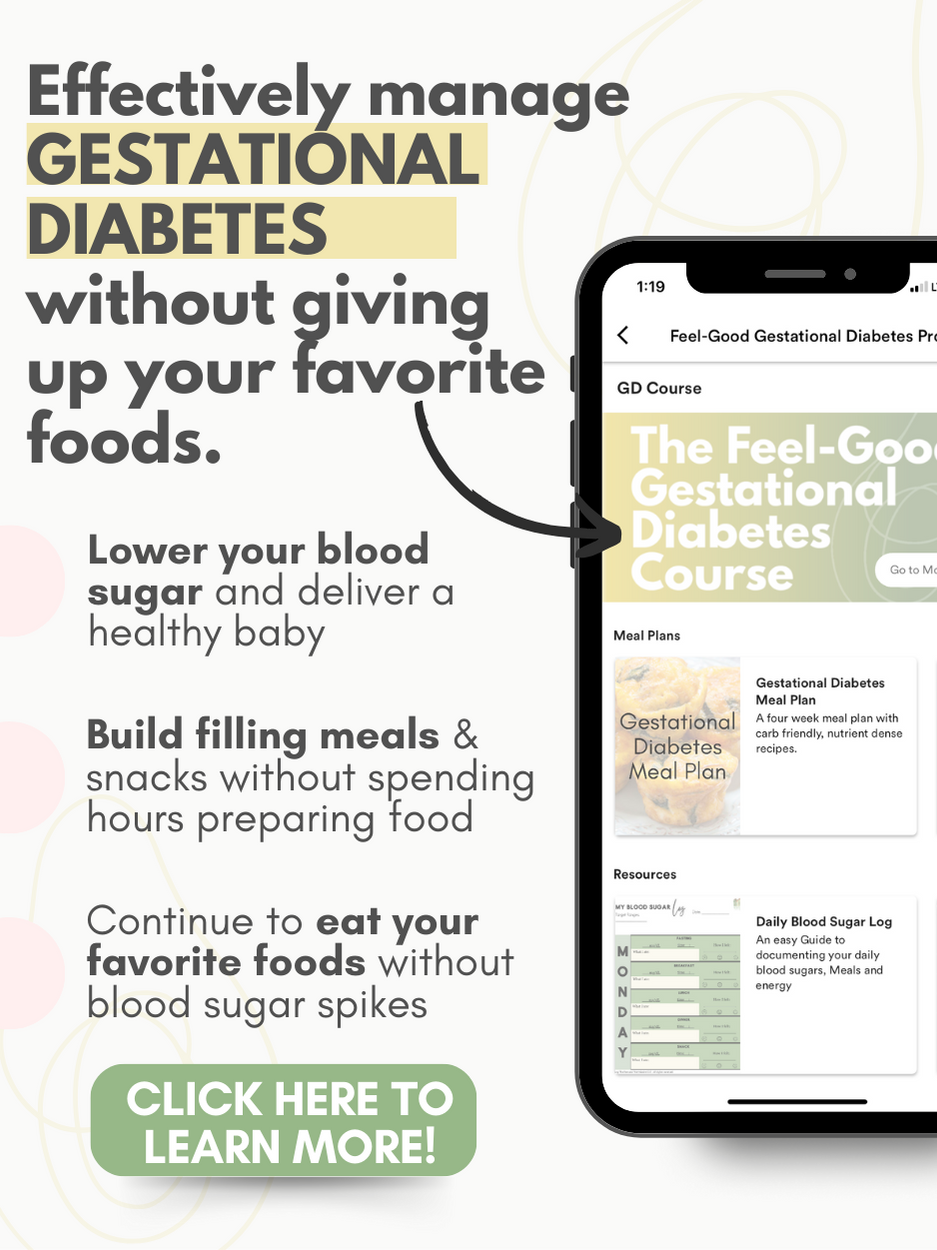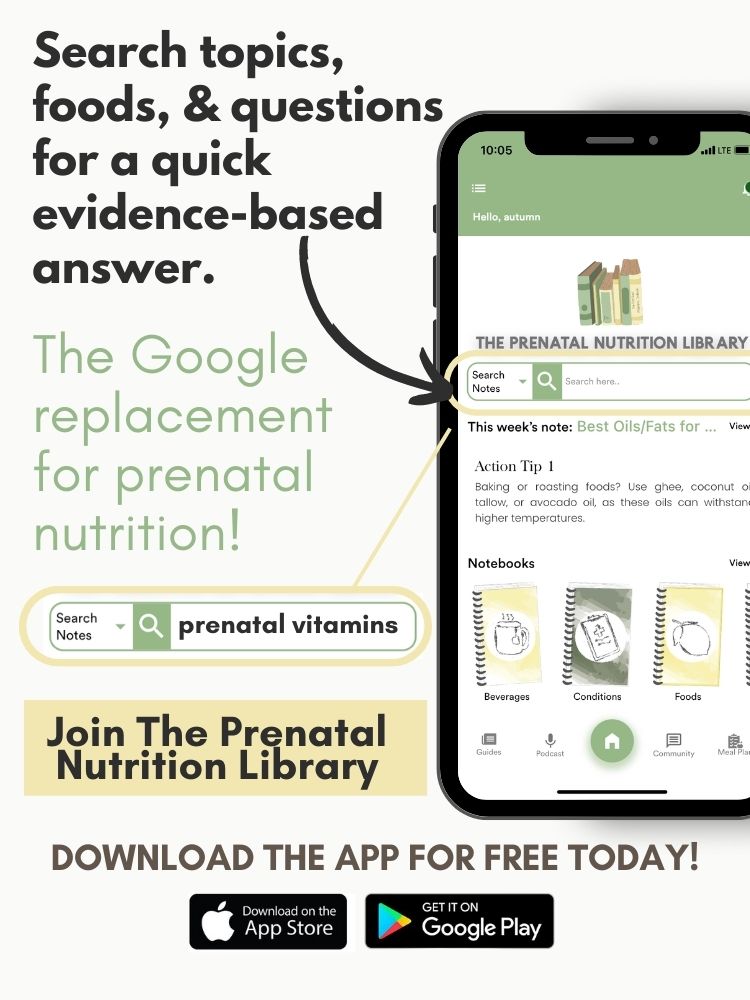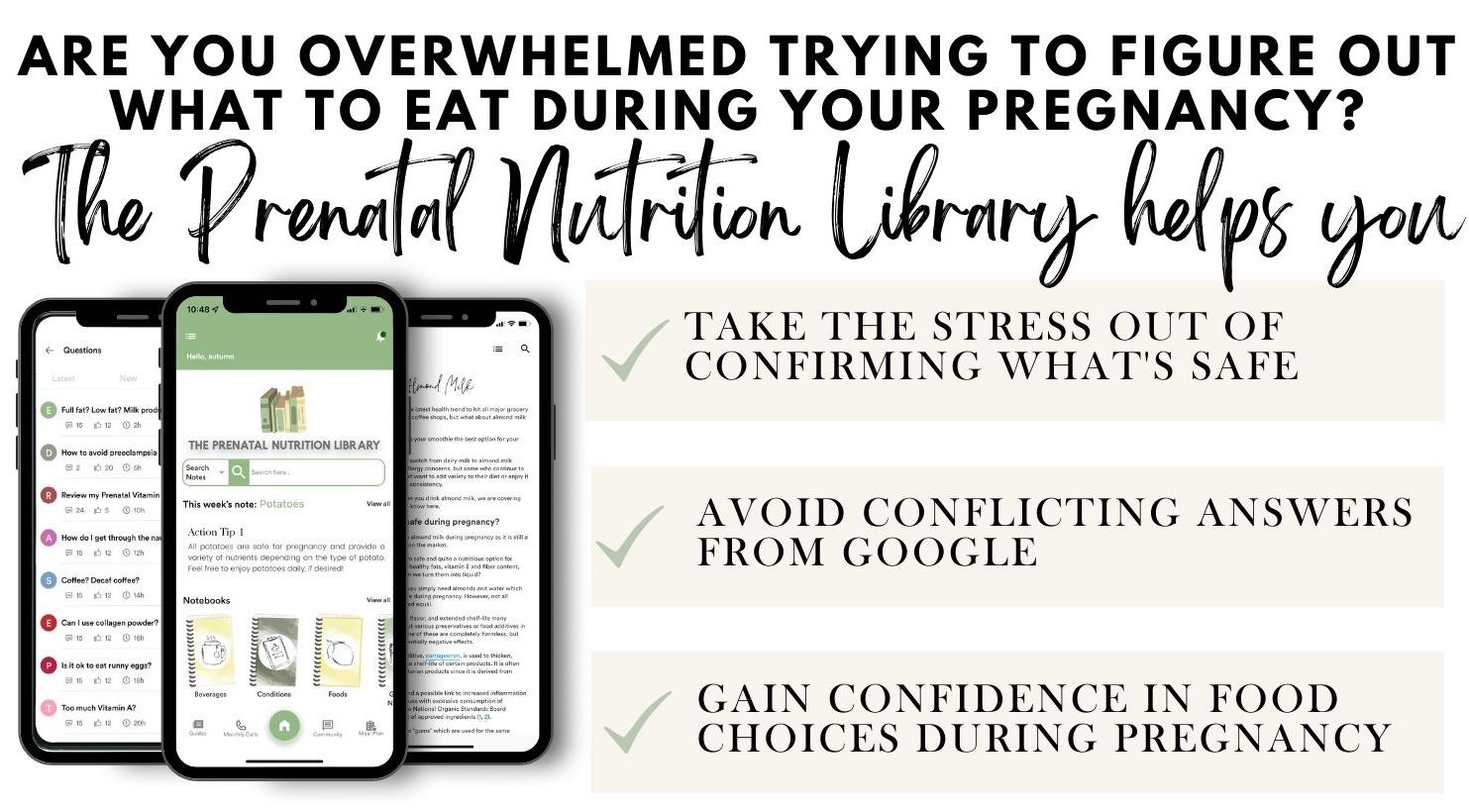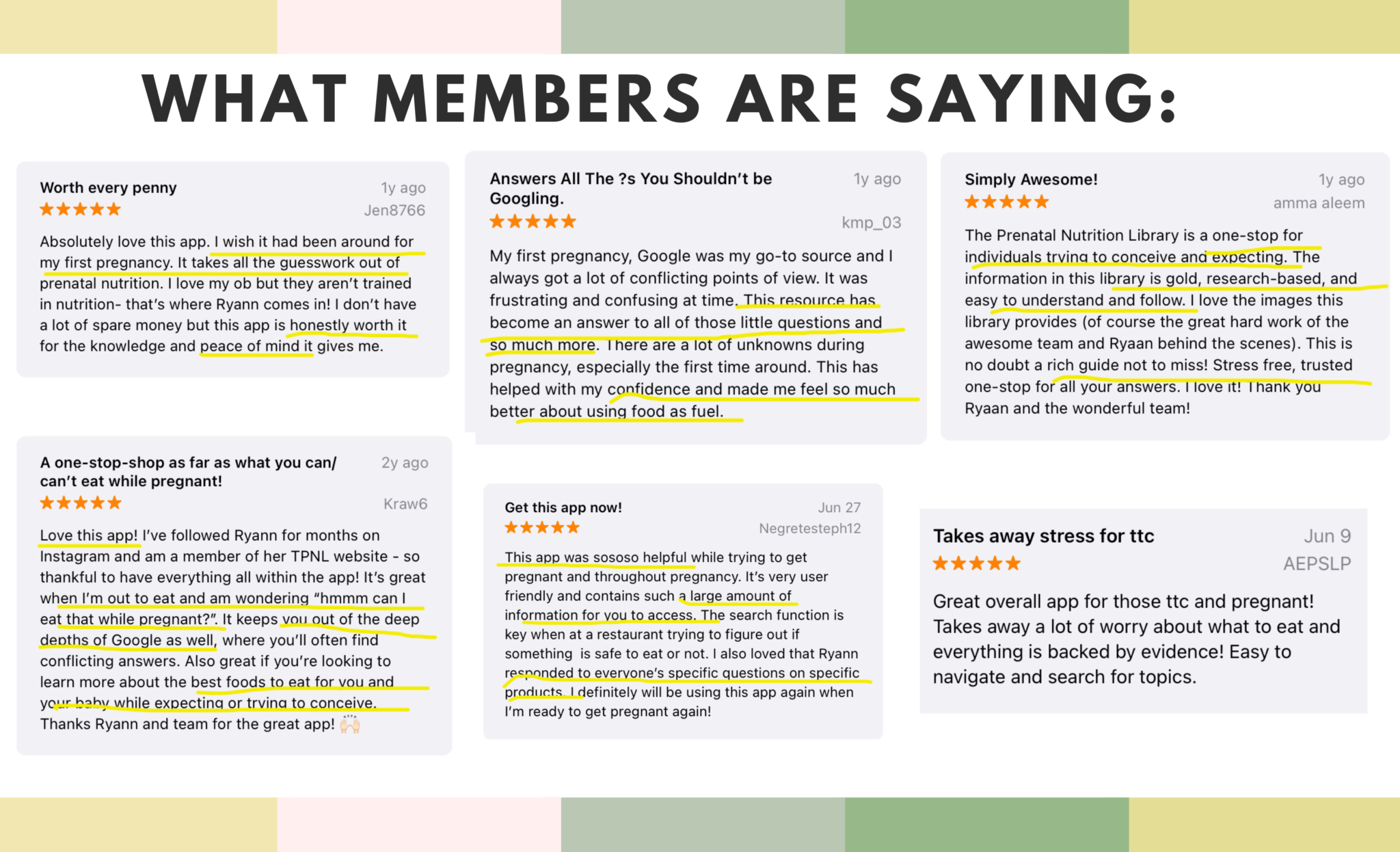
For those who may not be familiar, the glucose test is one of the routine tests expecting moms undergo between 24 and 28 weeks of pregnancy to check for gestational diabetes. The glucose screening test involves consuming an oral glucose beverage and taking a blood sample to measure blood sugar levels to check whether or not they exceed the standard range of less than 140 milligrams per deciliter (140 mg/dl).
Gestational diabetes is a type of diabetes that develops during pregnancy, causing high blood sugar levels. It’s estimated that anywhere from 2% to up to 10% of women in the United States are diagnosed with gestational diabetes every year. This is important because uncontrolled elevated blood sugars can lead to serious complications for both mom and baby.
For moms, it increases your risk of preeclampsia or high blood pressure during pregnancy. It can also increase the risk of a higher birth weight for the baby, leading to a harder delivery and increased risk of c-section. While important and serious, the good news is that there are many things we can do to keep gestational diabetes well-managed.
Here’s the kicker, though: searching for the answer to “what to eat before the test to pass” is not helpful. Whether a gestational diabetes diagnosis occurs or not, we want the most accurate results possible. The sooner we know if gestational diabetes is present, the sooner we can start more intentional strategies to manage it. Early intervention leads to better outcomes.
So, today, I’m going to share more information on what foods to eat before your glucose test. We will review a roundup of foods that could be great options to eat before the test. Again, please know the aim is to have the most accurate results possible and not to try to “trick the test.”
Additionally, follow the directions of your doctor’s office. The 1-hour glucose test does not require fasting. However, the 3-hour glucose test does require fasting prior to testing.
Let’s dig in!

What to Eat Before Pregnancy Glucose Test
When you eat carbohydrates, your body digests them and turns them into glucose. Once glucose is absorbed into our bloodstream, it travels to different cells, providing them with the energy they need to function properly. When there’s too much glucose in the body, problems can occur—the glucose test measures how efficiently your body processes glucose.
First, it’s important to follow your doctor’s instructions. But generally, I recommend eating as you normally would. This gives us the best picture of your typical day-to-day blood sugar levels.
In general, it’s a good idea to create balanced meals that include protein, fat, and fiber during pregnancy. This supports more balanced blood sugar levels, promotes satiety, and helps you meet nutrient needs throughout the day. Doing this is a good practice for everyone, whether diagnosed with gestational diabetes or not.
Below are specific foods to eat or drink before taking a pregnancy glucose test:
Oatmeal
Oatmeal is one breakfast option that supports steady blood sugars when well-balanced without a ton of added sugar. Oats are packed with soluble fiber, which regulates blood sugar. However, it’s still a source of carbohydrates. To balance it out, add plenty of protein and fats—for example, chia or hemp seeds, peanut butter, collagen peptide powder, or eggs.
Egg and Avocado Toast
Another excellent option is to mash some creamy avocado on a slice of hearty whole-grain or sourdough toast and top with two eggs for breakfast the morning of your glucose screening. Avocados contain healthy fats and fiber, and eggs contain quality protein to support blood sugar levels.
Hummus and Veggies
Chickpea hummus provides a small amount of protein and fiber, which helps keep blood sugar on an even level. To boost the nutrition, dip in crunchy cucumber, carrot, or bell pepper slices. You could even eat this alongside scrambled or hard-boiled eggs, if you are looking for a breakfast!
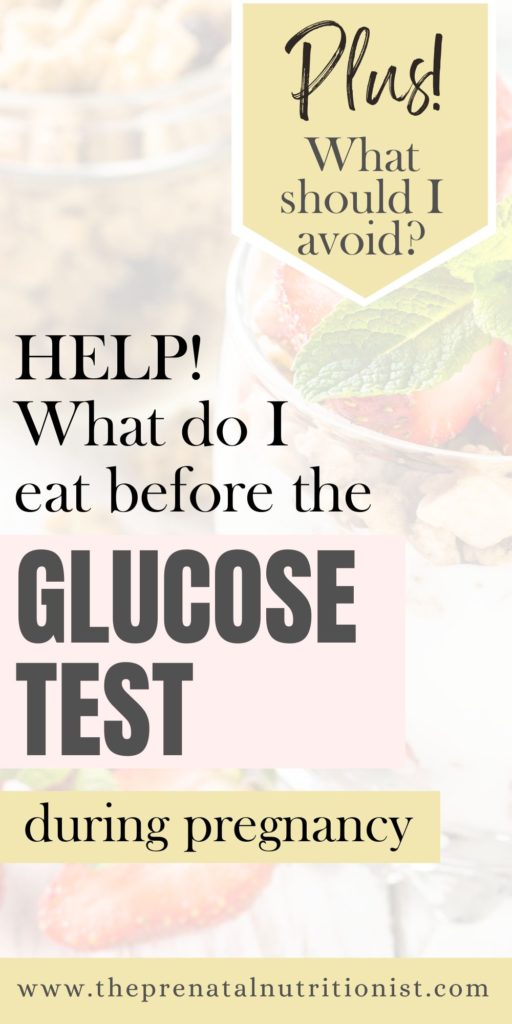
Quinoa Salad
You get all that amazing fiber from the quinoa, plus extra from whichever veggies you pack. Toss in a quality protein like grilled chicken or tuna, and you’re golden! That combo of fiber and protein is key to filling full and promoting healthy blood sugar levels.
Chia Seed Pudding
Many pregnant women are obsessed with this snack for many reasons. If superfoods were real, chia seeds would be one. These little seeds are packed with fiber, some plant-based protein, and omega-3 fats. Combine them with unsweetened almond milk (or any milk of your choice) and fresh berries, and you’re eating a super fiber-rich meal or snack!
Trail Mix
Trail mix is such a smart move for the pre-glucose test snack! When you DIY it with nuts, seeds, and maybe a bit of popcorn, you get the perfect blend of protein, healthy fats, and fiber to promote a healthy blood sugar response. Popcorn is a filling, lower carbohydrate grain, too.
Greek Yogurt Parfait
Greek yogurt is packed with protein to stabilize blood sugar. Layer that with fresh berries for extra fiber, plus a sprinkle of pumpkin seeds for added nutrients. This parfait has protein, fat, and fiber-rich carbs for pregnancy to keep your blood sugar nice and even-keeled.

What Not to Eat Before Pregnancy Glucose Test
As I mentioned, I recommend eating as you normally would before the test. This helps us get the most accurate results possible.
With that said, indulging in food like a plate of donuts pre-test may throw off your results and send your blood sugar levels on a total roller coaster ride.
Below are specific foods you may want to be mindful of consuming in moderation in general and may want to steer clear of right before your pregnancy glucose test:
Sugary Cereals
With the “health claims” on many cereal boxes, this food can be deceiving–tons of them are packing some serious added sugar and refined carbs. I’m talking upwards of 15 grams or more of added sugar in just one serving! Additionally, cereal is usually low in protein. This combination can lead to a blood sugar roller coaster.
Pastries and Donuts
As enjoyable as donuts and croissants may be, they’re comparable to desserts in carbohydrates and sugar. The refined carbohydrates and added sugars (15–30 grams of sugar per donut!) will raise blood sugar levels, especially if eaten alone without any added protein source.
Fruit Juices
Fruit is a great nutrient-rich choice for pregnancy, but fruit juice differs from whole fruit. A glass of juice on its own can be a blood sugar roller coaster waiting to happen! Even the ones without added sugars are a more highly concentrated source of carbohydrates without the fiber in whole fruits. For example, one 8-ounce glass of orange juice can pack around 20-26 grams of carbohydrates.
Sweetened Yogurts
Most flavored yogurts hide some serious added sugar. Some brands have 20–30 grams of sugar per serving! While some sugar in the diet is absolutely okay, we need to be mindful of our overall intake to support well-balanced blood sugar as best we can.
Yogurt is a great food for pregnancy, so find a plain one that you like and add your own sweetness at home, or read some nutrition labels and find one that is lower in added sugar!
White Bread and Bagels
White bread or a bagel seems like a nice, simple breakfast. But those choices are lacking in protein, fiber, and fat! If you enjoy bagels regularly, consider adding nourishing toppings like avocado, eggs, hemp seeds, cream cheese, and hot smoked salmon.
Regular Soda
Reaching for a can of sugary soda before your glucose test isn’t the most ideal choice. One 12-ounce can have about 39 grams of added sugar. This is a significant amount of added sugar hitting your system all at once with zero nutritional value.
Sweetened Instant Oatmeal
Plain whole-grain oatmeal with added protein can be a great, steady option, but those flavored instant packets? They can really pack in the sugar when you’re getting ready for glucose testing. Some flavored oatmeal packets contain 10–17 grams of added sugar in a small serving. It’s ideal to stick with plain oats and add your own toppings most of the time.
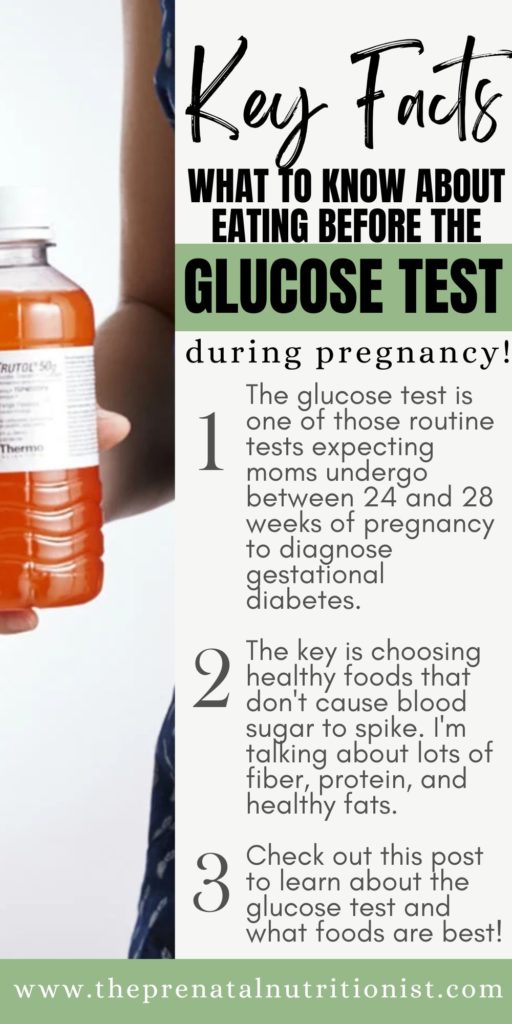
Well-balanced blood sugar levels are important for all pregnant women. An accurate glucose test helps us determine where our numbers are at.
Managing your blood glucose level during pregnancy is important! Typically, you’ll start with the 1-hour glucose challenge test, where you drink a sweet glucose beverage. Your blood sample will then be taken an hour after drinking the liquid. Depending on the outcome, your doctor may recommend a 3-hour oral glucose tolerance test to confirm or rule out gestational diabetes.
Eating well-balanced meals helps facilitate healthy blood sugar levels. When you focus on loading up on fiber-packed foods, protein, and those yummy healthy fats—you’re not just checking a box. You’re actually helping stabilize your blood sugar levels. But it goes way beyond just taking a test, you know?
Those nutrient-dense foods build the foundation for your baby’s development and strength. The protein lays the groundwork for their little muscles and cells; the fiber keeps things moving smoothly, and those fats? They’re brain food, helping grow one smart, thriving baby!
If you’ve felt overwhelmed or confused navigating nutrition during pregnancy, The Prenatal Nutrition Library (TPNL) is in your corner with real, evidence-based guidance. We break down blood sugar labs and balance, nutrients, and supplements, and we also provide balanced meal plans designed specifically for glowing moms like you.
And, if you do get diagnosed with gestational diabetes, we’ve got you covered with our Feel Good Gestational Diabetes Program. Designed to help you lower your blood sugar without giving up your favorite foods and ultimately deliver a healthy baby! Learn more and join here!
So, why not start by downloading our Free 1-week sample meal plan? See for yourself how stress-free and delicious this “eating for two” thing can actually be when you’ve got the right support!

